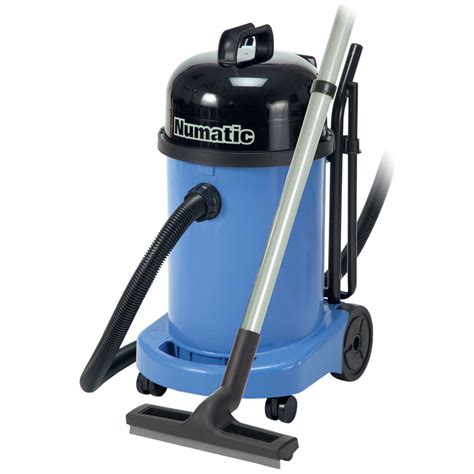Commercial vacuum cleaners are an essential tool for maintaining cleanliness and hygiene in various settings, including offices, schools, hospitals, and industrial facilities. These machines are designed to handle heavy-duty cleaning tasks, providing a deeper and more thorough cleaning than their residential counterparts. With a wide range of models available, selecting the right commercial vacuum cleaner can be a daunting task, especially for those who are new to the market. In this article, we will delve into the world of commercial vacuum cleaners, exploring their features, benefits, and applications to help you make an informed decision.
Key Points
- Commercial vacuum cleaners are designed for heavy-duty cleaning tasks and are suitable for large facilities and high-traffic areas.
- There are various types of commercial vacuum cleaners, including upright, canister, backpack, and wet/dry vacuums, each with its unique features and benefits.
- When selecting a commercial vacuum cleaner, consider factors such as suction power, filtration system, noise level, and maintenance requirements.
- Regular maintenance is crucial to extend the lifespan of a commercial vacuum cleaner and ensure optimal performance.
- Commercial vacuum cleaners can be used in various settings, including offices, schools, hospitals, and industrial facilities, to maintain cleanliness and hygiene.
Types of Commercial Vacuum Cleaners

Commercial vacuum cleaners come in various shapes and sizes, each designed to cater to specific cleaning needs. Upright vacuums are ideal for large, open areas, such as conference rooms and hallways, while canister vacuums are better suited for smaller spaces, like offices and classrooms. Backpack vacuums are perfect for cleaning large areas with minimal interference, as they allow the user to move freely without being restricted by a power cord. Wet/dry vacuums, on the other hand, are designed for cleaning up liquids and debris, making them a great option for industrial facilities and construction sites.
Upright Vacuum Cleaners
Upright vacuum cleaners are one of the most popular types of commercial vacuum cleaners. They are known for their powerful suction and ability to handle large areas with ease. Some upright vacuums come with advanced features, such as adjustable suction control, ergonomic handles, and HEPA filtration systems. When selecting an upright vacuum cleaner, consider the size of the area you need to clean, as well as the type of flooring you have. For example, if you have a large area with mostly hardwood or tile flooring, an upright vacuum with a hard floor attachment may be the best option.
| Vacuum Type | Suction Power | Filtration System |
|---|---|---|
| Upright | 100-200 AW | HEPA or Allergen-Proof |
| Canister | 80-150 AW | HEPA or Activated Carbon |
| Backpack | 50-100 AW | HEPA or Washable Pre-Filter |
| Wet/Dry | 100-200 AW | None or Optional HEPA |

Benefits of Commercial Vacuum Cleaners

Commercial vacuum cleaners offer a range of benefits, from improved indoor air quality to increased productivity. By using a commercial vacuum cleaner, you can reduce the amount of dust, dirt, and allergens in the air, creating a healthier environment for occupants. Additionally, commercial vacuum cleaners can help to extend the lifespan of your flooring, reducing the need for costly repairs and replacements. With their powerful suction and advanced filtration systems, commercial vacuum cleaners can also help to reduce the spread of germs and bacteria, making them an essential tool for hospitals and healthcare facilities.
Indoor Air Quality
Indoor air quality is a significant concern in commercial settings, as poor air quality can lead to respiratory problems, allergies, and other health issues. Commercial vacuum cleaners can help to improve indoor air quality by capturing dust, dirt, and allergens, and removing them from the air. Look for vacuums with HEPA filtration systems, which can capture 99.97% of particles as small as 0.3 microns, including dust, pollen, and other airborne pollutants.
Regular maintenance is crucial to extend the lifespan of a commercial vacuum cleaner and ensure optimal performance. This includes checking and replacing filters, cleaning the vacuum's exterior and interior, and lubricating moving parts. By following the manufacturer's maintenance instructions and performing regular maintenance tasks, you can help to prevent breakdowns, reduce repair costs, and extend the lifespan of your commercial vacuum cleaner.
What is the difference between a commercial and residential vacuum cleaner?
+Commercial vacuum cleaners are designed for heavy-duty cleaning tasks and are typically more powerful and durable than residential vacuum cleaners. They are also designed to handle larger areas and are often used in high-traffic settings.
How often should I maintain my commercial vacuum cleaner?
+Regular maintenance is crucial to extend the lifespan of a commercial vacuum cleaner and ensure optimal performance. Check and replace filters every 1-3 months, clean the vacuum's exterior and interior every 1-2 months, and lubricate moving parts every 3-6 months.
What are the benefits of using a commercial vacuum cleaner with a HEPA filtration system?
+Commercial vacuum cleaners with HEPA filtration systems can capture 99.97% of particles as small as 0.3 microns, including dust, pollen, and other airborne pollutants. This can help to improve indoor air quality, reduce the spread of germs and bacteria, and create a healthier environment for occupants.
In conclusion, commercial vacuum cleaners are a vital tool for maintaining cleanliness and hygiene in various settings. By understanding the different types of commercial vacuum cleaners, their features, and benefits, you can make an informed decision when selecting the right machine for your needs. Remember to consider factors such as suction power, filtration system, noise level, and maintenance requirements to ensure you find the perfect commercial vacuum cleaner for your facility.
